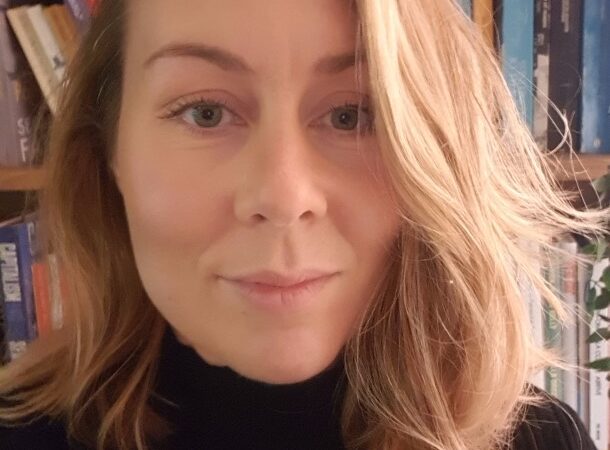We’re delighted to kickstart our series of guest blog posts on #EdCreativeCareers with an excellent contribution from Bronwyn Jones, Translational Fellow at the University of Edinburgh and Journalist at the BBC. Bronwyn shares her experience on having a blended creative career, and her advice on how you can use your diverse skills and experiences to reap the rewards of a multifaceted creative career.
Do you find yourself drawn to multiple subjects and struggling to confine yourself to just one path? You’re not alone. I’ve always found it hard to limit myself to just one thing – one subject to study, one job to perform, one view of the world. I enjoy eclectic influences and exposure to a diversity of ideas. This is what keeps me interested and engaged.
In this blog, I want to share my journey of navigating the creative industry by embracing my interests and pursuing multiple avenues simultaneously. I hope to show you that becoming a specialist in one domain isn’t the only, or even the best, career journey. Instead, you can intentionally mix and match different disciplines and reap the rewards of a multifaceted career in the creative industry.
To explain, I’ll take a step back and describe how I navigated my way to working as a journalist and academic at the same time.
It’s not the destination, it’s the journey
Faced with crippling choice, I couldn’t decide what to study at uni. I knew I preferred humanities and social sciences but narrowing down my options to one discipline seemed premature. I picked the degree with the most flexibility I could find, incorporating history, politics, languages (French and Italian), philosophy and sociology. This European Studies degree at Durham University set me up well for moving into journalism, which values this kind of broad curiosity coupled with the strong critical and communication skills these subjects foster.
After graduation, I found myself working on the French and Italian papers in a multilingual niche newsroom in Liverpool. I loved using my language skills and learning the quirks of the countries I covered alongside a great bunch of people from around the world. But I soon got curious about the news agencies who provided us with ready-made news copy – it surprised me that they shaped so much of how we view the world through the press. So, when I saw our local Journalism Department at Liverpool John Moores University had funding for a PhD, I jumped at the chance to explore it further, convincing them that even without a Masters, I could get up to speed with the research methods needed and do some lecturing on the side.
I’d found my ideal, and from then on, I split my time between reporting and researching. As my PhD was coming to a close, I took a punt on the BBC’s Journalism Trainee Scheme which led me into a 10-year (and still going) career at Britain’s largest public service broadcaster while doing independent research on the side. Now, I’m a Translational Fellow on the BRAID programme here at the University three days a week, looking at how artificial intelligence is impacting journalism and what role the arts and humanities can play in creating a responsible AI ecosystem. The rest of my time, I cover my home region for the BBC News website and work with the BBC Research and Development department to understand how to innovate with AI in the newsroom.
What I think is important here is that without a clear singular goal in mind, each step led me to new experiences and knowledge that shaped my next move, and having more than one plate spinning kept restlessness away and ended up being symbiotic. A working week in journalism can be incredibly hectic, with odd working hours and multiple consecutive deadlines. This balanced well with being able to step back and engage in thoughtful and critical reflection through academic research.
My advice to you
So, what can help you get set up for this kind of blended creative career? I’d say find your own way to build networks of people you admire, respect and who inspire you. This doesn’t mean going to every event that pops up or connecting with everyone you can (we all get LinkedIn fatigue!); rather it means being thoughtful and engaged in the interactions you do have, to build meaningful relationships over time.
The cultural and creative industries are full of fascinating people with a passion for work (and play), so reach out to them. Joining clubs and volunteering are certainly worthwhile and look good on your CV but, honestly, I worked part-time throughout my studies to pay my way and any spare time I had, I enjoyed with friends and family. It’s all about finding a healthy balance that works for you.
Working in two industries that are still poorly representative of wider society and skew to elites, I know that big structural barriers remain for making them the inclusive workplaces we want to see. But whether you’re a journalist, an academic, a creative or pursuing a different path, your unique perspective and experiences have the power to drive positive change.
As you embark on your own journey in the creative industry, remember that with hard work and determination, you can chart your own path.
Good luck!
Thank you, Bronwyn.
You can find more about Bronwyn on her University of Edinburgh profile, and you can get in touch with her on LinkedIn.
You can explore the exciting world of Journalism on our website.
Stay tuned as our next #EdCreativeCareers guest blogs are coming soon!


